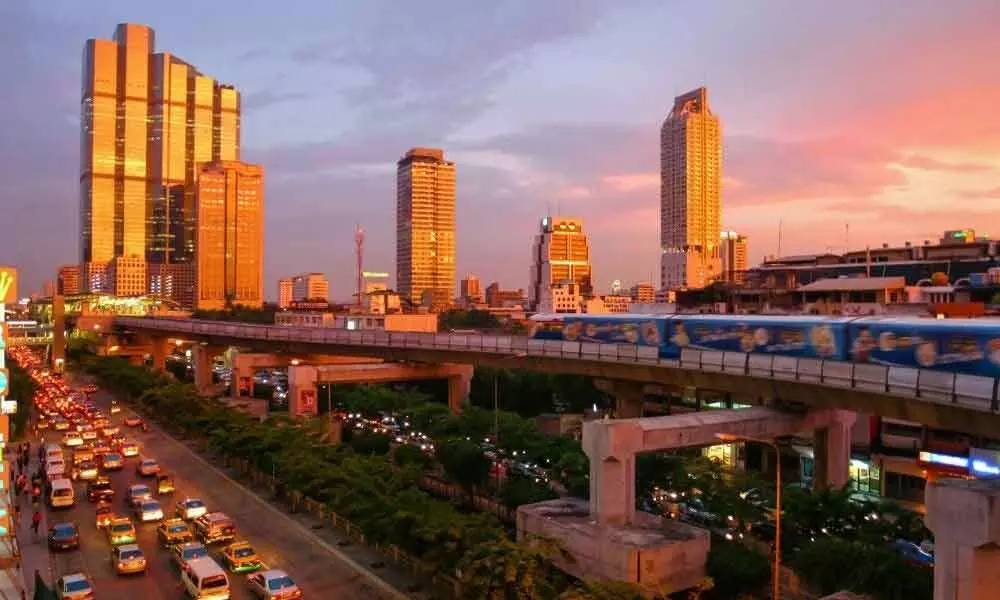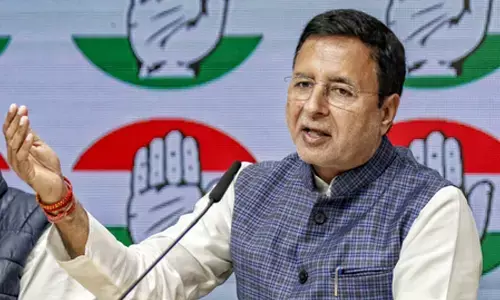Budget expectations 2022: Augment urban infra for sustainable growth

The focus should be on enabling policy environment, promoting innovative construction technologies, transparency in approval procedures ( Single Window Clearance for example), incentives and other support measures to enable private sector participation
Budget expectations 2022: It is expected that 50% of India's population will reside in urban areas in 2050 compared to 31% in 2011 (Source: UN World Urbanization Prospects 2018).
Budget expectations 2022: It is expected that 50% of India's population will reside in urban areas in 2050 compared to 31% in 2011 (Source: UN World Urbanization Prospects 2018). Indian cities will also keep on playing an important role for economic activities and will be instrumental for achieving the goal of becoming a USD 5 trillion economy. Given this, as part of Budget 2022-23, it is expected that urban sector development will continue to remain as one of the major focus areas.Budgetary allocations are expected to be made for:
Urban Housing– Government's Pradhan Mantri Awas Yojana-Urban (PMAY-U)provides central assistance to States and Union Territories for enabling access to affordable housing for urban poor. Indian cities need significant private sector investments for addressing housing shortage and providing affordable shelter to all urban dwellers. The Real Estate (Regulation and Development) (RERA) Act introduced by Governmentis helping to regularize and promote the real estate sector and protect the interests of home buyers in a transparent and accountable manner. The Model Tenancy Act, 2021 aims to create an effective regulatory ecosystem in India to govern landlord-tenant relationships which provide impetus to development of rental housing market in India. Government may incentivize adoption by States and Union Territories toboostprivate participation in real estate sector and rental housing andaddress the housing shortage. The focus should be on enabling policy environment, promoting innovative construction technologies, transparency in approval procedures ( Single Window Clearance for example), incentives and other support measures to enable private sector participation.
Digital Transformation–Indian citiespresent significant opportunityfor scaling upDigital India Missionand helpingcreatenew digital ecosystems across diverse sectors of economy. By adopting innovative and data-driven technologieslikeArtificial Intelligence/Machine Learning, the Smart Cities in India are already usingICT based smart solutionstomanage various urban services relating to mobility and transport, citizen safety and security, energy management, waste management and many more.Focus should now be to look beyond and enable smaller cities/townsto access shared digital infrastructure and use technology-based innovation for solving urban problems.
The National Urban Digital Mission, jointly launched by the two Ministries, MoHUA and MeiTY, aims to create such shared digital infrastructure and facilitate technology and data-driven urban transformation in over 4,700 cities and towns. Government may consider incentivizing theStates and Union Territoriesthat promote such data-driven urban transformation by providing them access to performance-based grants.
Urban Mobility–Union Budget 2021-22 emphasized on raising the share of public transport in urban areas through expansion of metro rail network and augmentation ofpublic bus transport services.The Metro Rail Policy 2017 enables the state governments to create metro rail networks with central assistance. Newer variations of metros such as Metro-Neo and Metro-Lite are emerging to meet the requirements of tier-2 cities at lower costs providing similar experience, convenience and safety.Cities are adopting innovative public private partnership (PPP) models for enabling private sector players to finance, acquire, operate and maintain large number of city buses.Electric mobility remains an integral part of envisioning future cities. Emphasis is on faster adoption and manufacturing of electric vehicles, includingbattery manufacturing and deployment of charging infrastructure. With the continued focus on sustainable urban transport and promotion of Green Urban Mobility, the Central Government may incentivize States and Union Territories for enhancing their share of public transport and forpromotingNon-Motorized Transport through enabling policies.
Water and Sanitation–Enabling universal access to water supply and safe sanitation in all urban areas through AMRUT 2.0 and SBM 2.0 were announced by the Ministry of Housing and Urban Affairslast year. With the objective of making Indian Cities water secure and self-sustainable, AMRUT 2.0 focuses on providing potable water to all citizens in 4700 statutory towns through household tap connections and sewerage/septage management services to all urban households. Reuse of treated wastewater and rejuvenation of waterbodies are the other focus areas. With the aspiration of making all cities garbage-free and open defecation free, SBM 2.0 focuses on source segregation of municipal solid waste, remediation of legacy dumpsites, providing access to safe and dignified sanitation for all urban households and complete liquid waste management in smaller towns. Emphasis should also be given on leveraging ICT based technologies and smart solutions for effective utility management for operations and management of water supply and wastewater distribution networks.
Urban Resilience and Climate Change–Indian Cities are playing an important role to help achieve the nation's commitment to become net zero by 2070 (Glasgow, COP26) and achieve the commitments made under SDGs. The National Mission for Sustainable Habitat (NMSH) under the National Action Plan on Climate Change (NAPCC), aims to make Indian Cities sustainable through improvements in energy efficiency in buildings, management of solid waste and a shift to public transport. As part of its climate mitigation efforts, India has set a target of installing 450 GW of renewable energy by 2030 from the current installed capacity of 100 GW. Renewable energy projects are being taken up under several schemes by the Government. Augmenting public transport through metro rail networks and public bus transport along with scientific waste management across all urban areas remains a continuing priority.One of the focus areas in the budget can/ be on incentivizing the use of electric vehicles for public bus transport. Initial efforts made under Smart Cities Mission have beentowards mainstreaming climate actions in urban planning and helping cities to be more responsive and less vulnerable to climate change. Some of the other key areas which may need additional financing include promoting sustainable cities with increased green cover, urban forests, energy and water conservation.
Innovative Municipal Finance–Toenableurban infrastructuredevelopment at speed and scaleand making cities self-reliant requiresinnovative approaches to municipal finance. While some Indian Cities have implemented Public Private Partnerships(PPP)successfully, others have learned the nuances of structuring commercially viable projects through their attempts. Issuance of municipal bonds to raise money from capital markets for infrastructure projects is highly encouraged under the Atal Mission for Rejuvenation and Urban Transformation (AMRUT) of Government. Land monetization and carbon credit financing are adopted in a few Smart Cities and there is significant scope to replicate these in other cities. There should be continued focus on making our cities Atmanirbhar (self-reliant) through a series of municipal reforms aimed at improving financial discipline of urban local bodies, citizen-centric governance, augmenting own source revenues, etc.
Urban sector will remain a key area enabling India's growth. Augmenting urban infrastructure through greater investments will not only enhance competitiveness of Indian cities but also enhance ease of living, improve environmental conditions as well as enable creating more employment.
(Debashish Biswas is Partner; and Murali Thimmapuram is Director with Deloitte Touche Tohmatsu India LLP)








